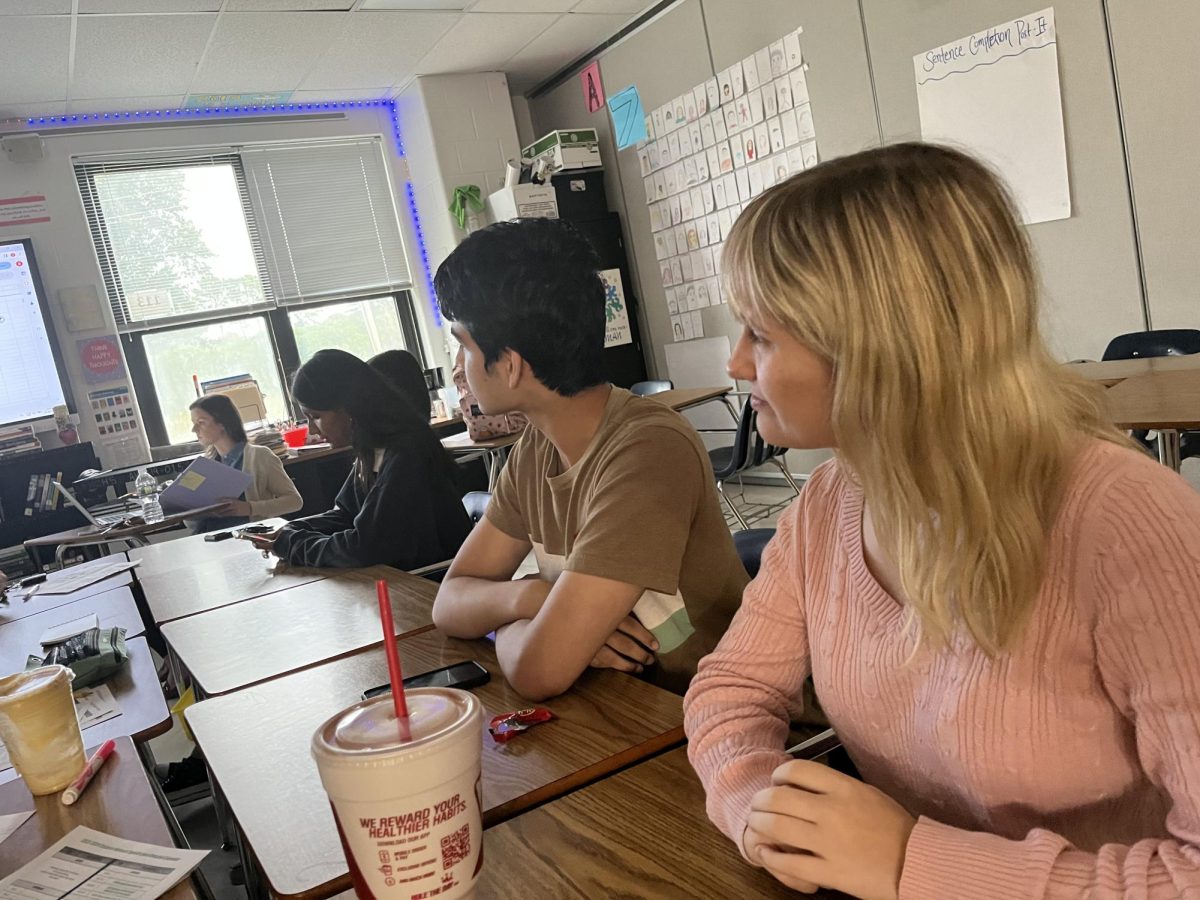Traveling can be exciting and terrifying, especially when going to another country. Walking into Midwestern America, coming  from Rio Grande do Sul in southern Brazil was more than a minor change for junior Ana Borba, a foreign exchange student from Brazil. Although she was excited to meet new people and have this experience in another country, she was still scared to go to school in a new place where she didn’t know anyone.
from Rio Grande do Sul in southern Brazil was more than a minor change for junior Ana Borba, a foreign exchange student from Brazil. Although she was excited to meet new people and have this experience in another country, she was still scared to go to school in a new place where she didn’t know anyone.
Ana is spending first semester at FHN, and in November she will decide if she will stay for the whole year.
Many things are different in America compared to Brazil. In Brazil school starts at 7 a.m. and ends at noon, then many students get to go do things with friends. There is a different class every day of the week, and sports only practice two days a week.
“Here is like robot,” Ana said. “Every day the same, go to school, go to tennis, come home, do homework, and do all same next day. In Brazil sports are only two days a week, and I have the day to hang out with my friends.”
Traveling runs in the family for Ana. Both her sister and brother have participated in exchange programs, her sister six years ago, and brother last year.
The host family Ana is staying with has a connection with her family as well. Her host dad, Jacob Martensen, traveled to Brazil 15 years ago and stayed with Ana’s family. He and Ana’s dad are now good friends.
“Fifteen years ago, I went to Brazil to teach English,” Jacob said. “While there, I stayed with Ana’s family and she was about two-years-old. Her dad and I have kept in contact ever since, and I told him if his kids ever want to come to America they could stay with me.”
In order to participate in an exchange program, first a person must contact an exchange program to see what country, city, and school they will be attending. Then the program contacts a host family to see if they are willing to take in a student.
Next, the family contacts their school district to enroll the student in school. Most exchange students stay for the whole year, however, a majority of the time the classes taken while in another country do not count towards the credits necessary to graduate in the person’s home country.
“A lot of students do it because it helps them get jobs in the future, and helps them learn English,” Guidance counselor Mary Kerr-Grant said. “It is also a good experience.”








![Ninja Christmas [Comic]](https://FHNtoday.com/wp-content/uploads/2024/12/Ninga-Christmas-Comic-1200x898.jpeg)







